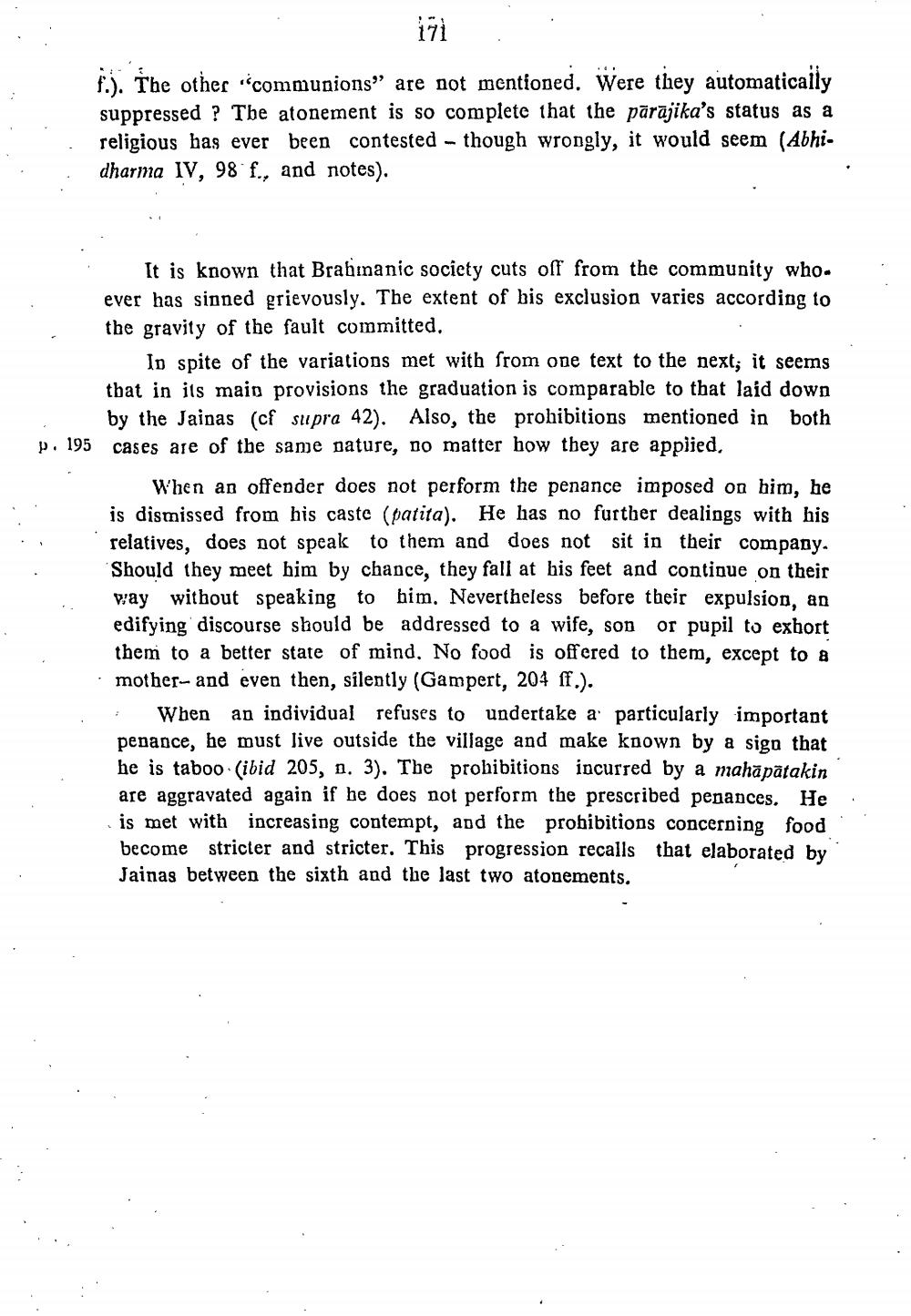________________
f.). The other communions” are not mentioned. Were they automatically suppressed ? The atonement is so complete that the pārājika's status as a religious has ever been contested - though wrongly, it would seem (Abhi. dharma IV, 98 f., and notes).
It is known that Brahmanic society cuts off from the community who. ever has sinned grievously. The extent of bis exclusion varies according to the gravity of the fault committed.
In spite of the variations met with from one text to the next; it seems that in its main provisions the graduation is comparable to that laid down
by the Jainas (cf supra 42). Also, the prohibitions mentioned in both p. 195 cases are of the same pature, no matter how they are applied,
When an offender does not perform the penance imposed on him, he is dismissed from his caste (patita). He has no further dealings with his relatives, does not speak to them and does not sit in their company. Should they meet him by chance, they fall at his feet and continue on their way without speaking to him. Nevertheless before their expulsion, an edifying discourse should be addressed to a wife, son or pupil to exhort
them to a better state of mind. No food is offered to them, except to a • mother, and even then, silently (Gampert, 204 ff.). .: When an individual refuses to undertake a particularly important penance, he must live outside the village and make known by a sign that he is taboo (ibid 205, n. 3). The prohibitions incurred by a mahāpātakin are aggravated again if he does not perform the prescribed penances. He. is met with increasing contempt, and the probibitions concerning food become stricter and stricter. This progression recalls that elaborated by Jainas between the sixth and the last two atonements.




